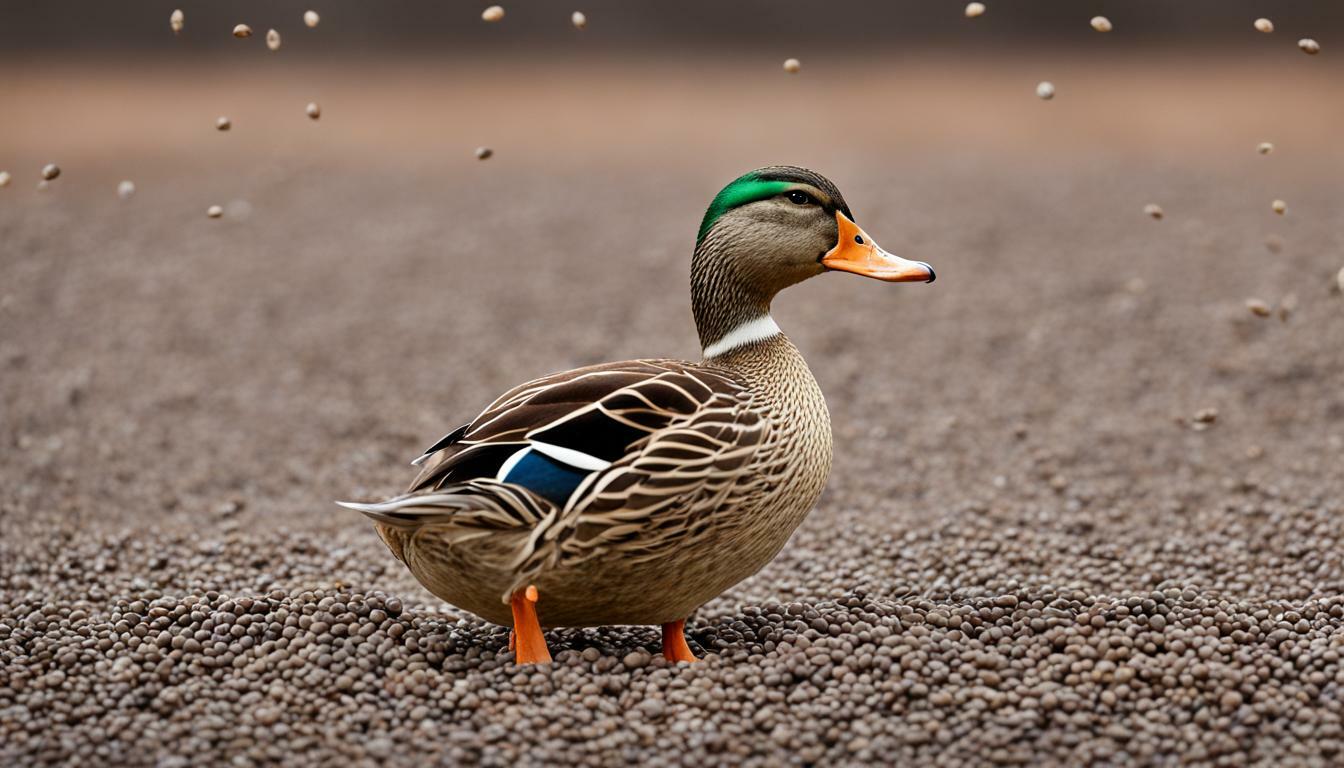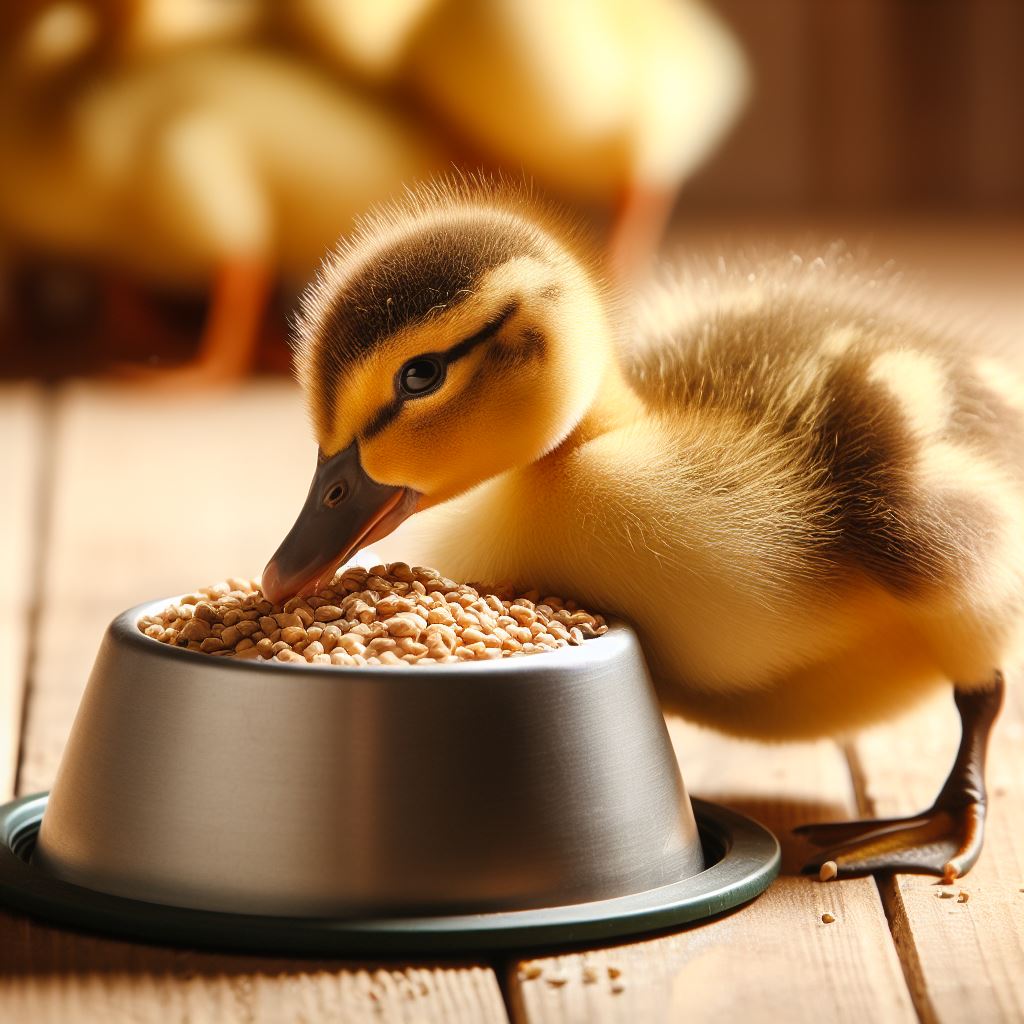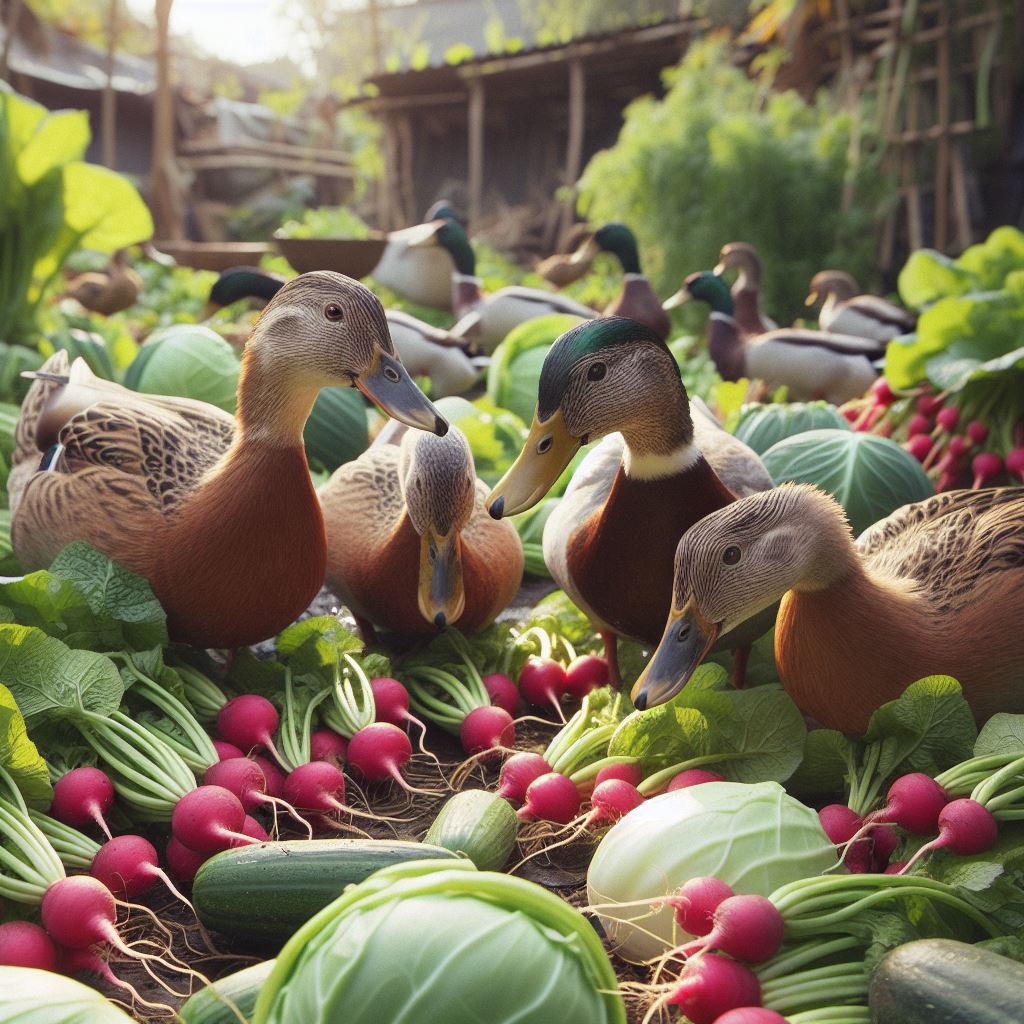Can Ducks Eat Chia Seeds? Discover the Facts Today!

Table of content:
- Are Chia Seeds Safe for Ducks to Eat?
- What Happens if Ducks Eat Chia Seeds?
- Can I Feed My Pet Ducks Chia Seeds?
- Will Chia Seeds Hurt Ducks if Ingested?
- Should You Give Ducks Chia Seeds as Treats?
- Are Chia Seeds Good for Duck Nutrition?
- Do Wild Ducks Eat Chia Seeds?
- Can Baby Ducks Eat Chia Seeds or Are They a Choking Hazard?
- What are the Benefits of Feeding Chia Seeds to Ducks?
- How Much Chia Seeds Can I Safely Feed My Duck?
- Final Thoughts
Chia seeds have become a popular health food in recent years. Known for being rich in fiber, protein, and omega-3 fatty acids, chia seeds provide many nutritional benefits for humans. But can ducks also eat chia seeds safely? Let’s take a look at the pros and cons of feeding chia seeds to ducks.
Are Chia Seeds Safe for Ducks to Eat?
When introducing any new food to ducks, it’s always wise to exercise some caution. Chia seeds themselves are not toxic to ducks, but there are some potential risks to be aware of.
Chia seeds expand and form a gelatinous coating when exposed to liquid. This could pose a choking hazard, especially for baby ducklings. Adult ducks may try to gorge themselves on chia seeds, which could expand in their crop and cause an obstruction.
So as long as chia seeds are fed in moderation to adult ducks and avoided altogether for babies, they should be safe. Supervise ducks when offering chia seeds for the first time to monitor for any signs of distress.
Start With Small Amounts for Adult Ducks
When offering chia seeds to adult ducks for the first time, start with just a few seeds mixed in with their regular food. This allows the ducks to try the new food while limiting their intake as you monitor them.
Gradually increase the amount over a few days or weeks as you confirm the ducks are eating them without issue. Never make chia seeds more than about 5% of the total diet for adult ducks.
Avoid Chia Seeds for Ducklings
The small size and tendency to form a thick gel means chia seeds could easily cause choking or crop impactions in baby ducks. For that reason, it’s safest to avoid feeding chia seeds to ducklings under 6 months old.
Their digestive systems are too immature to properly handle expanding seeds. Wait until ducks are mature before introducing small amounts of chia into their diet.
So in summary, chia seeds come with some risks but can be fed safely to adult ducks in moderation. Use extra care when first offering them, and don’t feed to young ducklings. Monitor for any signs of distress and discontinue use if problems develop.
What Happens if Ducks Eat Chia Seeds?
Assuming chia seeds are fed properly, ducks are likely to enjoy them and gain some nutritional benefits. Here’s an overview of what to expect if your ducks eat chia seeds:
- Nutrition: Chia seeds provide protein, omega-3s, calcium, phosphorus, and antioxidant activity. This supplements the duck diet nicely.
- Energy: The high-fat content in chia seeds delivers a concentrated source of energy. Ducks may become more active and energetic after eating them.
- Hydration: The gel that forms when chia seeds get wet may help maintain hydration in ducks, keeping their mucous membranes moist.
- Full crop: The seeds expand in the crop, leaving ducks feeling satiated and less likely to overeat their regular food.
- Digestion: The fiber in chia helps support healthy digestion, while the oils provide lubrication through the gastrointestinal tract.
- Feces changes: Due to residue from undigested seeds, feces may appear speckled with gelatinous material or have a more solid consistency.
So chia seeds provide some benefits, as long as they are fed appropriately. Monitor for any signs of crop impaction or other issues and adjust the amount as needed. Most ducks enjoy them without problems.
Can I Feed My Pet Ducks Chia Seeds?
Pet ducks can definitely eat chia seeds, although some precautions should be taken. Here are some tips for safely feeding chia seeds to pet ducks:
- Wait until ducks are at least 6 months old before introducing chia seeds.
- Always supervise ducks when offering chia seeds to monitor for reactions.
- Mix just a small amount (around 1 teaspoon per duck) into their regular food at first.
- Gradually increase the quantity every few days up to about 1 tablespoon per duck per day.
- For young ducks under 1 year old, limit chia seeds to once or twice a week.
- Ensure ducks have easy access to fresh water to help the seeds pass through the digestive tract.
- Watch for signs of crop impaction like decreased appetite, difficulty swallowing, or lethargy.
- Discontinue use if any irritation, discomfort, or other concerning symptoms develop after eating the seeds.
As long as chia seeds are introduced slowly and fed in moderation, most pet ducks can enjoy them safely along with a balanced diet. Monitor closely and adjust the amount given as needed on an individual basis.
Will Chia Seeds Hurt Ducks if Ingested?
Chia seeds are not inherently toxic or poisonous to ducks. However, they do carry some risks of causing physical harm if fed improperly:
Choking Hazard
Whole chia seeds may present a choking hazard, especially for young ducklings. Their small size could cause them to lodge in the throat if swallowed. For this reason, chia seeds are not recommended for baby ducks under 6 months old.
Crop Impaction
Because chia seeds absorb liquid and form a gel coating, they can expand significantly in size inside a duck’s crop. Eating too many at once may result in a mass that is too large to pass into the stomach. This crop impaction requires immediate veterinary care.
Intestinal Blockage
If chia seeds are not chewed properly, they could clump together and cause a dangerous blockage further down in the intestines as well. Signs include loss of appetite, lethargy, or straining to defecate.
Nutritional Imbalances
Feeding too many chia seeds may lead to an imbalance of calcium, phosphorus, or other nutrients. This typically occurs only with excessive long-term feeding.
By starting slowly, monitoring intake, and feeding in moderation, the risks of physical harm to adult ducks from chia seeds can be minimized. Never make them a dietary staple. But used occasionally as a supplement, chia seeds are generally safe for mature ducks.
Should You Give Ducks Chia Seeds as Treats?
Chia seeds can make a healthy, nutritious treat for ducks in small amounts. Here are some benefits of offering chia as an occasional treat:
- Provides extra protein, fatty acids, and fiber
- Ducks enjoy the taste and texture
- Gel-coating helps hydrate mucous membranes
- Moderate portion once or twice a week is safe
- Promotes foraging behavior by searching for seeds
- Easily digested when eaten slowly as treats
There are also some disadvantages to be aware of:
- Risk of crop impaction if overfed
- Small risk of choking on unchewed seeds
- Can reduce appetite for balanced main diet
- Ducklings under 6 months should not have chia treats
Overall, chia seeds make an appropriate supplemental treat for mature ducks in limited portions a couple times per week. About 1-2 teaspoons per duck is a reasonable treat amount. Just don’t overdo it, and never offer chia seeds as the sole food at any meal.
Are Chia Seeds Good for Duck Nutrition?
Chia seeds can provide some nutritional value as part of a balanced diet for ducks. Here’s an overview of the key nutrients they offer:
Protein
Chia seeds contain high-quality protein, providing all essential amino acids. This supports muscle maintenance and growth. However, excessive protein from chia seeds could disrupt the calcium-phosphorus ratio.
Omega-3 Fatty Acids
The alpha-linolenic acid (ALA) in chia delivers anti-inflammatory omega-3s. This supports brain function and healthy lipid profiles in duck blood and tissues.
Dietary Fiber
Soluble fiber makes up about 85% of the carbohydrates in chia seeds. This promotes healthy digestion and nutrient absorption.
Calcium
With about 6% of the RDI per ounce, chia seeds provide a readily absorbed plant-based source of calcium for bone health. But overdoing chia seeds could lead to an imbalance in phosphorus.
Antioxidants
Chia seeds have very high antioxidant activity, which helps protect duck tissues from oxidative damage. Carotenoids and chlorogenic acid are some of the key antioxidants.
So in moderation, chia seeds can provide valuable protein, fatty acids, fiber, minerals, and antioxidants as part of a balanced diet for ducks. Avoid overfeeding them, though, and do not offer chia seeds as a sole source of nutrition.
Do Wild Ducks Eat Chia Seeds?
Chia seeds grow naturally in some subtropical areas of Mexico and South America. But they are not a traditional part of the diet for most wild duck species. Here are some reasons why:
- Chia is not native to the habitats of most wild ducks. The seeds only grow in certain subtropical climates.
- As small, hard seeds, chia would be difficult for many ducks to digest. Larger waterfowl can manage them better.
- Chia seeds sink in water, making them less accessible. They don’t float on the surface to be grabbed like other aquatic plants.
- The tiny seeds could be inadvertently consumed while foraging among grasslands. But they would not provide much caloric value to most wildfowl.
- Birds like peppered ducks may consume chia seeds when foraging over scrublands in South America where chia grows more commonly.
So while not a normal part of their ecosystems, some wild ducks in Latin America may encounter and ingest small amounts of chia seeds by happenstance. But the seeds would not constitute a meaningful part of their wild diets in most cases.
Can Baby Ducks Eat Chia Seeds or Are They a Choking Hazard?
It’s best to avoid feeding chia seeds to baby ducklings under 6 months old. The dry, tiny seeds present a substantial choking risk for young ducks for several reasons:
- Their small throats and digestive tracts are easily obstructed by small foreign objects.
- They lack the muscular coordination and gullet control to properly swallow harder seeds.
- Chia seeds can rapidly absorb water and swell to large gel balls that can lodge in the crop or throat.
- The natural foraging behavior of ducklings makes them prone to gobbling up anything small they find, including chia seeds.
- Young duck immune systems and digestive functions are immature, making it harder to manage seeds.
For all these reasons, chia seeds should never be deliberately fed to ducklings. Any ingested accidentally would pose a high risk of choking, impaction, or other harm. Wait until ducks are at least 6 months old before introducing chia seeds in small amounts.
What are the Benefits of Feeding Chia Seeds to Ducks?
Here’s an overview of the main benefits that mature ducks can gain from eating chia seeds in moderation:
- Excellent plant-based source of protein and amino acids
- Provides anti-inflammatory omega-3 fatty acids
- High in dietary fiber for healthy digestion
- Rich in antioxidants to reduce oxidative stress
- Supports strong bones with calcium and phosphorus
- Gel-coating helps lubricate mucous membranes
- Adds variety to diet and keeps ducks engaged
Chia seeds also have a long shelf life compared to other feed. When stored in cool, dry conditions, they will keep fresh for 2-4 years. So they make a convenient supplemental treat.
Just be sure to introduce chia seeds slowly, feed conservatively, and monitor ducks for any signs of reaction. Never offer seeds to ducklings under 6 months old due to choking hazards. Within those precautions, chia seeds can be a beneficial addition.
How Much Chia Seeds Can I Safely Feed My Duck?
When offering chia seeds to mature ducks for the first time, start with just 1-2 teaspoons per duck mixed into their regular food.
Monitor them closely for their reaction over the next 24 hours. If no signs of distress or reduced appetite, increase to 1 tablespoon per duck the next day.
Over 2-4 weeks, the amount can be gradually increased to a maximum of around 1-2 tablespoons per adult duck per day.
To stay on the safe side, here are some maximum daily quantities to follow:
- Ducklings under 6 months: None
- Juvenile ducks under 1 year: 1 teaspoon
- Adult ducks: 1-2 tablespoons
Spread intake over the whole day, rather than just at one meal. Ensure fresh drinking water is always available as chia seeds can be dehydrating.
Adjust quantities immediately if any concerning symptoms develop like vomiting, diarrhea, lethargy, or loss of appetite after eating the seeds. Discontinue use if reactions are severe.
With controlled portions and monitoring, most ducks can enjoy chia seeds as an occasional nutritious supplement without issue. Never allow ducks to overindulge, and keep seeds away from young ducklings. Follow these precautions for safe chia seed feeding.
Final Thoughts
When used properly, chia seeds can be a healthy supplemental food for mature ducks. Their excellent protein, omega-3s, fiber, minerals, and antioxidants provide nutritional benefits. Ducks also enjoy the taste and treat-like nature of chia seeds in moderation.
However, chia seeds do come with some risks. They can swell and cause obstructions if eaten excessively. Young ducklings should never consume dry chia seeds due to choking dangers. By starting slowly with small amounts for adult ducks only, monitoring closely, and discontinuing use if any concerning symptoms arise, chia seeds can safely be included as an occasional nutritious treat. Follow these tips for avoiding problems and gaining the benefits of chia seeds for your flock.
Welcome. I’m Adreena Shanum, the proud owner of this website, and I am incredibly passionate about animals, especially poultry. I founded adreenapets.com as a labor of love, stemming from my desire to share my knowledge and experiences with poultry enthusiasts worldwide.




